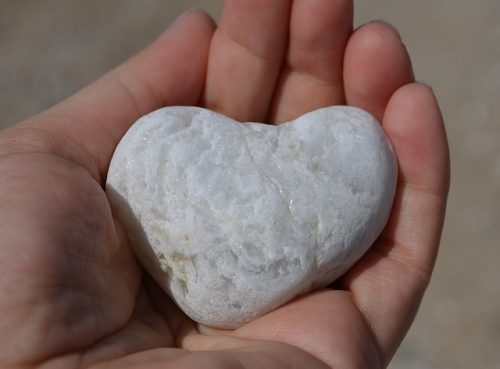by Dana Kramer-Rolls
It is the season for the annual Stewardship Drive. Okay, we need to do good works. We also need to keep the lights on. I do the parish archives. I have a huge box marked “Stewardship” which contains, among other things, a bazillion schemes for encouraging giving. Some new, some forty years old. They all look the same. Probably yesterday you received a pledge card. Here is some more to think about.
Our creation story always said God made everything: stars, planets, lions, fig trees, pond scum, my cats, and me. Everything is made in God’s image. And God cares about all of them. First the Jews and then the Gentiles in Christ always had a cosmic view of things. We really don’t possess anything, although we think we do. Being human means that we are blessed to know that there is a God, and that we are loved. We can feel the presence of the Holy Spirit. And we believe what we are told about Jesus in Scripture and the Creeds. And unlike many ancient religions, even before the Incarnation there was an intimacy between God’s people and God. A lot more laws, but since Jesus sent out the seventy, and since Paul spread the word to the wider world we were asked, not told, to yield to God’s will. That language was one of kings, lords, gods, but we had only one King, one God.
In the old days stewards were servants. Heralds were the voice of the king. Stewards were the managers for the king. All very organized. The operative phrase here is “for the king.” And responsible to the king. Remember all those parables about investing talents (a unit of money)? About the bad tenants who tried to steal the fields, and about the workers who came at the last hour, but were paid in full? We are given stewardship of the earth. We name things, use things. But they are not ours. Everything we have is our King’s, our God’s. Care for the vineyard, the flock, the field. In today’s terms, when we strip mine for profit, not for the good of the poor, and without regard for all the displaced plants and animals, we are not good stewards. When we hold on to our goods and services for profit and to the detriment of the needy, we are not good stewards. This week we are reminded of the greatest commandment, to love the Lord our God with all our hearts and souls and minds, and second to it, to love our neighbor as ourselves. A good start for being a good steward.
Last week we heard how Jesus tricked the Pharisees and Herodians into producing a denarius which showed on one side Tiberius Caesar, and identified him as son of the deified Augustus. The other side names Caesar as the Pontifex Maximus, high priest. Augustus was named a god because he was the genius of Rome, Rome’s protective spirit. (And, yes, I noted the irony that the Son of God, our High Priest, points out the son of the god Augustus, the Roman high priest, Pontifex Maximus. Just when you think it is simple.) But Rome is not the Kingdom of Heaven, and the Living God of Abraham and Moses, and of Jesus’ Father, is silent. That denarius was an idol, and Augustus a false god. And today, money is often worshiped as the genius loci (guiding spirit of a place) in our world.
Is all money idolatry? We know Jesus enjoyed hospitality, even of tax collectors. Hospitality costs money. What we can do is to use our money for the Kingdom as best as we can. Yes, I will continue to buy books. And pay bills. And buy food. But I also want to give what I can to keep the lights on in our sacred space where we teach, love one another in fellowship, and spread the Gospel. Jesus wasn’t calling us to extreme poverty. But he did say “Follow me.” Jesus said feed, help, heal. That is how we love our neighbors. We show our love for God in worship. We worship when we spread Jesus’ word and do his bidding. We worship God in prayer, in the beauty of our Episcopal liturgy, and the abundant gift of Holy Food at God’s Table. We worship in the beauty of God’s world. And we are the stewards who have to keep the Light on.
Give more. Use less. Serve more. Be generous. God the Holy Trinity has been more than generous with us. And I, for one, am grateful beyond words.
Dr. Dana Kramer-Rolls is a parishioner at All Souls Parish, Episcopal, Berkeley, California and earned her master’s degree and PhD from the Graduate Theological Union, Berkeley, California. Thanks to my rector, the Rev. Philip Brochard, for a bit of his sermon which I borrowed for this piece.
Image Pixabay

